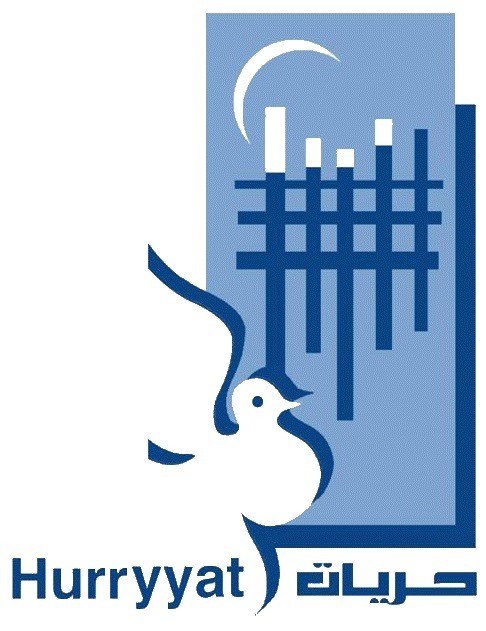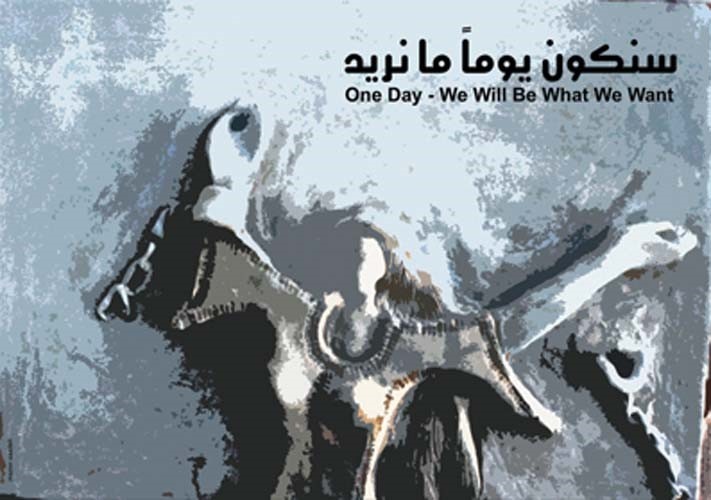In a systematic and blunt manner, the Israeli occupation authorities violate the standards of International Humanitarian Law and the Human Rights Law in their way of treating ailing prisoners. The Israeli government deliberately endorses racist laws that undermine the legal status of prisoners, depriving them from their basic rights, and their early release in any way possible.
The Israeli Prison Services IPS is determined to break prisoners’ immovability and resistance in accordance to the Israeli Knesset laws through a systematic policy that violates the provisions of the International Humanitarian Law IHL. This is empathized through the series of inhumane practices that include overcrowding in prison cells, poor ventilation, lack of sun exposure, the limited break time, lack of proper meals , lack of cleaning supplies, exposing prisoners to radiation, lack of periodic medical examinations, psychological and physical abuse, beating, strip searching, confinement, spraying them with gas and deprivation of family visits which can aggravate the physical and mental health situation of prisoners and increase the probability of contracting various diseases that can be avoided if appropriate arrest circumstances and proper health care were provided.
Statistics & Numbers
According to the database of the Center for Defense of Liberties & Civil Rights “Hurryyat” of September 2019, the Israeli medical negligence policy caused the death of 63 prisoners inside the Israeli hails since 1967, of whom three lost their lives since the beginning of this year
1. Faris Baroud who died on February 6, 2019 after spending 28 years behind bars.
2. Nassar Taqatqa who died on July 16, 2019 after one month of his arrest as a result of torture, and medical negligence.
3. Bassam al-Sayeh who died on September 8, 2019 after a long struggle from Leukemia, bone cancer and cardiomyopathy, however, his early release has never been approved by the Israeli authorities despite the continuous and wide requests, according to the racist law enacted by the Israeli Knesset on December 26, 2018 forbidding the release of sick prisoners under the pretext of resisting the occupation, labeling this action as terrorism.
Two other prisoners were deceased during 2018,
1. Mohammad Marshoud: was shot by a settler and directly arrested on April 9, 2018. Marshoud was not able to survive the injury, he died in less than 24 at an Israeli hospital.
2. Aziz Oweis: May 20, 2018 who lost his life as a result of medical negligence, beatings and abusing.
Not only the Israeli authorities caused the death of these prisoners, but also it refuses to release their bodies to their families for a respectful burial according to Palestinian religious and national traditions. An example is the martyr Anees Douleh who died in prison on August 31, 1980 after 12 years of imprisonment, and his body is still detained until this moment.
In addition; tens of prisoners died shortly after their release as a result of the diseases that they suffered from is prison, including Walid Shaath, who spent eighteen years in prison and died six months after his release, Seitan Al-Wali who from the occupied Syrian Golan Hights who spent 23 years in prison and died after less than three years of his release. Naeim Sharawnah who was released among the first phase of the Swap Deal of 2011 after 19 years of imprisonment, but died in two years. Zuhair Lubbadeh died in less than a week after his release of a long Administrative Detention.
Others like Saied Shamlakh, Jameel abu-Sneineh, Atef abu-Baker, Amjad Alawneh, Moslem al-Doudie, Mousa Juma’a, Adnan al-Balboul, Zakariya Issa, Ziad Hamed, Ayed Jamjoom and many others.
Female and male prisoners are estimated in Israeli jails as 5700 prisoners, of whom 700 are suffering different diseases, 297 cases are in critical health situations as the table below shows:
297 Critical Health Situation
13 Cancer & Tumers
21 Eyes
30 Heart Diseases
16 Diabetes & Blood Pressure
9 Blood and Vascular Diseases
9 Paralysis
36 Bone problems
53 Kidneys & Esoteric Diseases
22 Mental and Psychological Diseases
20 Lung and breathing problems
68 Shooting injuries
Among the most prominent ailing prisoners are Sami abu-Diak, Mutasem Raddad, Mansour Mouqadeh, Yusri Masri, Alaa’ Hams, Khalid Shaweesh, Nahed Aqra’, Riyad al-Amour, Mohammad Brash, Fawwaz Ba’ara, Ibrahim Alqam, Ibrahim Bitar, Murad abu-Muailek, Fuad Shoubaki, Adel Hurreibat, Sami Oreidi, Mohammad Mirdawi, Nabeel al-Natsheh, Isra’a Ja’a bees, Saeid Banna, Kamel Mansour, Salam al-Zaghal, Sa’ad al-Deen Jaber, Mourhan Awwad, Ayman al-Kurd, Kamal abu-Wa’ar, Othman abu-Khurj.
Palestinian Prisoners according to the International Law
The medical negligence policy clearly underlines the IPS and its’ medical crews’ disregard to the rights of Palestinian Prisoners and violation of the IHL and its provisions. Moreover, depriving the ailing prisoners of the rights granted by International conventions of Human Rights, especially the Standard Minimum Rules for the Treatment of Prisoners of 1957 issued by the United Nations, which stipulates in (Articles 22 and 25) the need to provide at least one qualified doctor for each prison with a reasonable knowledge of psychiatry and in charge of making daily visits to ailing prisoners. Article 30 of Third Geneva Convention relative to the treatment of prisoners of war of 1949 states that:
”Every camp shall have an adequate infirmary where prisoners of war may have the attention they require, as well as appropriate diet. Isolation wards shall, if necessary, be set aside for cases of contagious or mental disease. Prisoners of war suffering from serious disease, or whose condition necessitates special treatment, a surgical operation or hospital care, must be admitted to any military or civilian medical unit where such treatment can be given. , even if their repatriation is contemplated in the near future. Special facilities shall be afforded for the care to be given to the disabled, in particular to the blind, and for their. Rehabilitation, pending repatriation.
Prisoners of war shall have the attention, preferably, of medical personnel of the Power on which they depend and, if possible, of their nationality.
Prisoners of war may not be prevented from presenting themselves to the medical authorities for examination. The detaining authorities shall, upon request, issue to every prisoner who has undergone treatment, an official certificate indicating the nature of his illness or injury, and the duration and kind of treatment received. A duplicate of this certificate shall be forwarded to the Central Prisoners of War Agency.
The costs of treatment, including those of any apparatus necessary for the maintenance of prisoners of war in good health, particularly dentures and other artificial appliances, and spectacles, shall be borne by the Detaining Power.”
Article 13 of the same convention states that “Prisoners of war must at all times be humanely treated. Any unlawful act or omission by the Detaining Power causing death or seriously endangering the health of a prisoner of war in its custody is prohibited, and will be regarded as a serious breach of the present Convention. In particular, no prisoner of war may be subjected to physical mutilation or to medical or scientific experiments of any kind which are not justified by the medical, dental or hospital treatment of the prisoner concerned and carried out in his interest.
Likewise, prisoners of war must at all times be protected, particularly against acts of violence or intimidation and against insults and public curiosity. Measures of reprisal against prisoners of war are prohibited.”
The costs of treatment, including those of any apparatus necessary for the maintenance of prisoners of war in good health, particularly dentures and other artificial appliances, and spectacles, shall be borne by the Detaining Power”.
Regarding the access to health care; Article 85 of the Fourth Geneva Convention, article 29 of the Third Geneva Convention and articles 25 & 26 of the Standard Minimum Rules for the Treatment of Prisoners has indicated the importance of providing medical services and personal hygiene. However, the IPS policy does not take into account these legal provisions and does not provide the minimum appropriate terms and humane arrest conditions. Clinics lack specialized physicians and medical equipment. It is worth mentioning that the Ramleh prison is the only prison that has a clinic and provides medical care for patients, yet; the procrastination in the surgical procedure, the torment of ailing prisoners while being transported with no consideration to their medical status or privacy, increase their suffering, specially that the IPS does not hesitate to practice harassment, intrusions and night searches in this clinic, with no consideration to the medical status of the prisoners which surpasses them to prefer the stay in their prison other than being treated.
Hurryyat’s Requests:
In light of the grave and continuous violations of the Israeli occupation, represented by the Israeli Prisons Administration IPS, by practicing medical negligence against ailing prisoners, the Center for the Defense of Liberties and Civil Rights “Hurryyat” demands:
• Working at the regional and International levels to pressure the Israeli government to release ailing prisoners in critical health situations, holding it responsible to their lives.
• Prosecute the Israeli authorities responsible for the medical negligence policy causing death of ailing prisoners, and threatening the lives of those in critical situations despite the threat to their lives and refusing their early release.
• Pressure to enable the World Health Organization to implement its decision on improving health and living conditions of prisoners and detainees, and the formation of a fact-finding committee to visit Israeli prisons, exposing the whole world to the Israeli intentional medical negligence.
• Enable committees of medical specialists to meet ailing prisoners and provide appropriate treatment for them.
• Open the Israeli jails doors to delegations, international institutions and fact-finding committees to perceive arrest and health conditions of ailing prisoners.
• Providing appropriate arrest conditions according to the relevant international standards.
• The provision of appropriate treatment for ailing prisoners to alleviate their suffering.
• Secure legal assistance to ailing prisoners and enhance the role of lawyers in this regard to obtain their medical files and provide reports from specialized doctors about the ailing prisoners’ health conditions.
• Launch an international campaign to expose the international community to the suffering of the ailing prisoners and work on the release of those suffering from serious illnesses.


